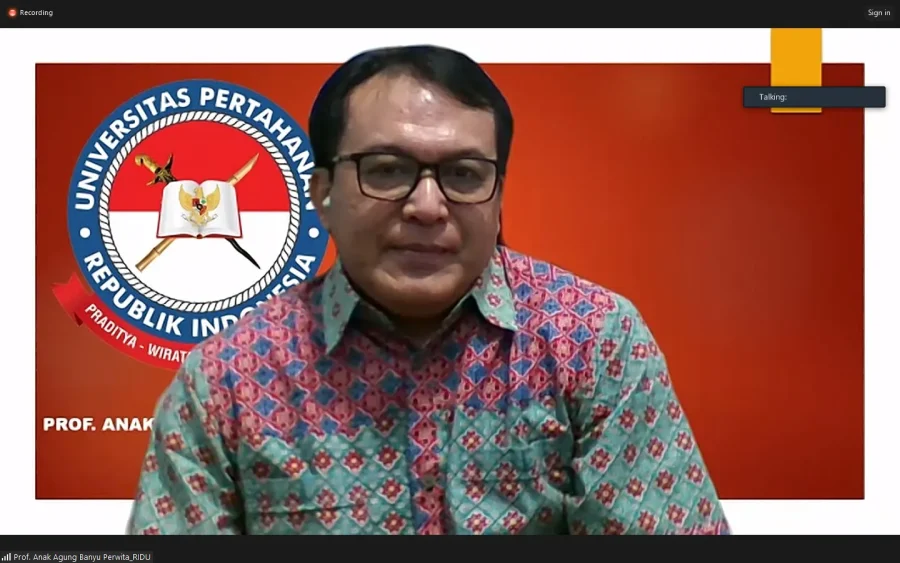Zubair Qureshi
Professor of International Relations, Department of International Relations, National Defence University, Prof Anak Agung Banyu Perwita while addressing the 10th session of the Online Internship Programme (OIP)—a joint initiative of the Embassy of Indonesia and Bahria University of Islamabad— defined the Foreign Policy of Indonesia as “Bebas-Aktif” or “Independent-Active” explaining the two key and basic principles as hallmark of his country’s foreign policy since 1948.
In the words of the Indonesian Vice President Mohammad Hatta the Indonesian Foreign Policy was “Rowing between Two Reefs” since the country envisioned a policy of not aligning itself with world’s major powers and maintaining a balance between them, he said.
Prof Anak stated that Indonesia’s foreign policy focused on promoting economic development, regional integration, conflict resolution, and multilateral engagement, prioritizing national integrity, economic stability, pluralism, democracy, and global peace efforts.
“Indonesia’s foreign policy is derived from its unique cultural values, historical experiences, aspirations of the society and its strategic position in world politics” the speaker informed the participants.
He further informed that historically, these principles and values are essential part of the preamble of 1945 constitution adding that Indonesia committed itself to abolish colonialism and create a world order based on Independence peace and social justice.
With these basic principles, Indonesia’s foreign policy, a blend of diplomacy and struggle, successfully maintained and defended its freedom against the Dutch and gained international recognition. It chose not to align with the US and USSR, acting as an active agent to decide its own standpoint. The policy also aimed to mitigate ideological rivalry among elites and evolve a consensus for secular nationalism over religious-nationalism.
In this context of cold war between US and USSR, the Asia-Africa Conference, hosted by Indonesia in 1955, and organized by Indonesia, Burma (Myanmar), India, Ceylon (Sri Lanka) and Pakistan was the first large-scale Asian–African Conference of newly independent twenty-nine countries that represented a total population of 1.5 billion people, 54% of the world’s population. The meeting of these leaders was a key point in the history of developing countries that gave rise to the Non-Aligned Movement (NAM) and the concept of the Third World or the South.
Moving on to the New Order Era of 1967-1998 the speaker said that under the President Soeharto, the New Order’s first foreign policy initiative was to radically change Indonesia’s foreign policy and commit to a good neighborhood policy, leading to the establishment of ASEAN in 1967 to promote domestic political stability and economic development by removing conflict sources” he apprised the participants.
He described the next priority of President Suharto foreign policy was to restore Indonesia’s relations with US and Japan by implementation of “diplomacy for development” to attract foreign investment in managing the domestic economy through the creation of IGGI in 1967.
The speakers underlined that since then ASEAN has been the cornerstone of Indonesia’s Foreign Policy which has contributed to its international and regional standing, has helped attract investment and has opened up markets for exports. He shared with the participants that ASEAN has fostered regional harmony through the 1976 Treaty of Amity and Cooperation in SEA contributing to a more autonomous regional order, providing international leverage and promoting security cooperation.










